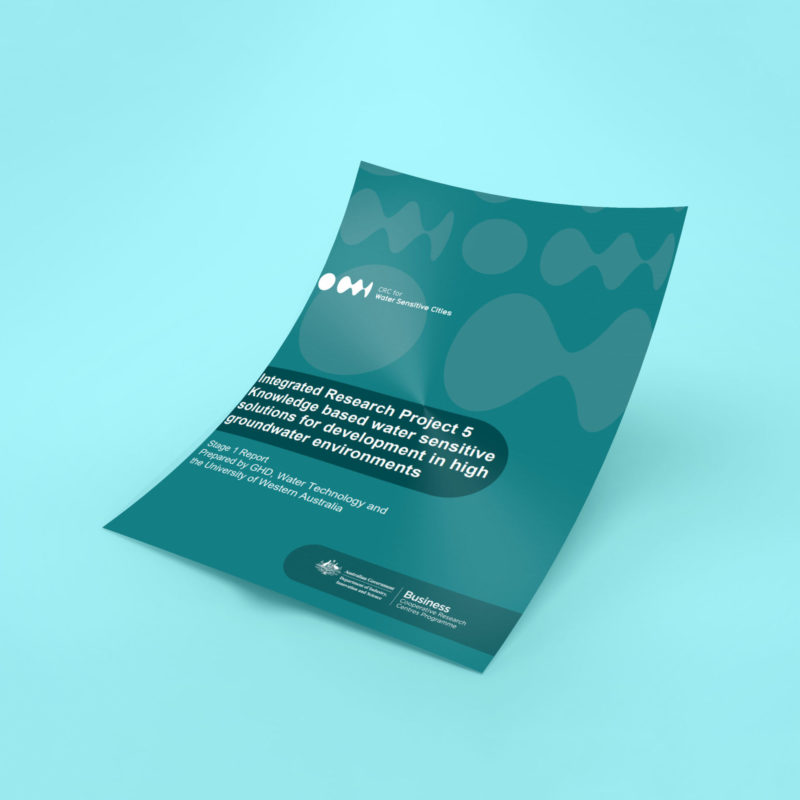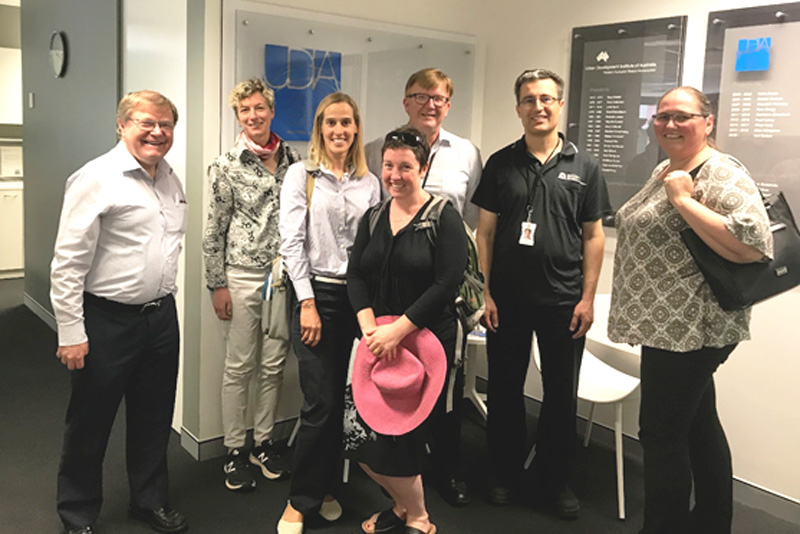IRP5 is kicking goals
There’s lots of great news out of IRP5 (Guiding urban water management in areas that experience high seasonal groundwater)—the last of our integrated research projects to get underway.
First, the IRP5 team released its first output—the Stage 1 report, Knowledge based water sensitive solutions for development in high groundwater environments.
IRP5 aims to better understand the impact of urban development in high groundwater impacted environments (that is, where the water table is within 4 m of the natural ground surface). Stage 1 was a scoping study to evaluate academic and non-academic research and ‘grey’ literature from Australian and international sources, and define the state of knowledge for urban development in areas of high groundwater.

GHD, Water Technology and the University of Western Australia conducted the scoping study, which included structured interviews with more than 20 practitioners, regulators, researchers and academics located in Australia and overseas.
The study identified 27 contested knowledge areas and six unknown knowledge areas, clustered around the broader knowledge areas of pre- and post- development water balance, particularly:
- infiltration and recharge rates
- evapotranspiration rates
- groundwater fluxes
- groundwater levels.
IRP5 Stage 2, commenced in September 2019 led by UWA’s Professor Carolyn Oldham, to address these fundamental water balance and water quality gaps, using case studies, expert knowledge and new data and information.
The IRP5 Expert Panel consists of Associate Professor Dr Sally Thompson from The University of Western Australia (UWA), Dr Margaret Shanafield from the National Centre for Groundwater Research and Training (Flinders University), and Greg Claydon (Chair, CRCWSC Board Director), assisted by Research Associate, Dr Ana Mareno-Ruiz (UWA).

The Panel completed its first round of site visits and face to face discussions in Perth during November/December, 2019, and delivered a draft report in January 2020 for broader stakeholder information and feedback. It reconvened in Perth in mid-February, 2020 for follow up discussions with practitioners, regulators and researchers and to hear initial feedback on the draft report from stakeholders, such as the Urban Development Institute of Australia’s WA Branch Urban Water Committee.
A workshop was also held with the CRCWSC Western Regional Advisory Panel, and the Perth based Water Sensitive Transition Network to discuss the draft report.
The aim of the Panel’s report is to deliver on two main objectives:
- guidance for planning and designing urban developments in high groundwater areas, building on practitioners’ and researchers’ experience and knowledge of the Swan Coastal Plain
- recommendations for further research, data and information collection or methods that may improve the guidance over time.
The Panel now has a wealth of information and insights, and is especially grateful to the stakeholders involved in the discussions and meetings.
The final report will be delivered in March 2020 .
More about IRP5
Once complete, IRP5 will have produced guidelines and innovative solutions that achieve more effective, water sensitive outcomes for groundwater impacted developments.
If you’d like to know more about IRP5, which is being led by Professor Carolyn Oldham from UWA, you can go here or contact Samantha Lemons (s.lemons@uq.edu.au).